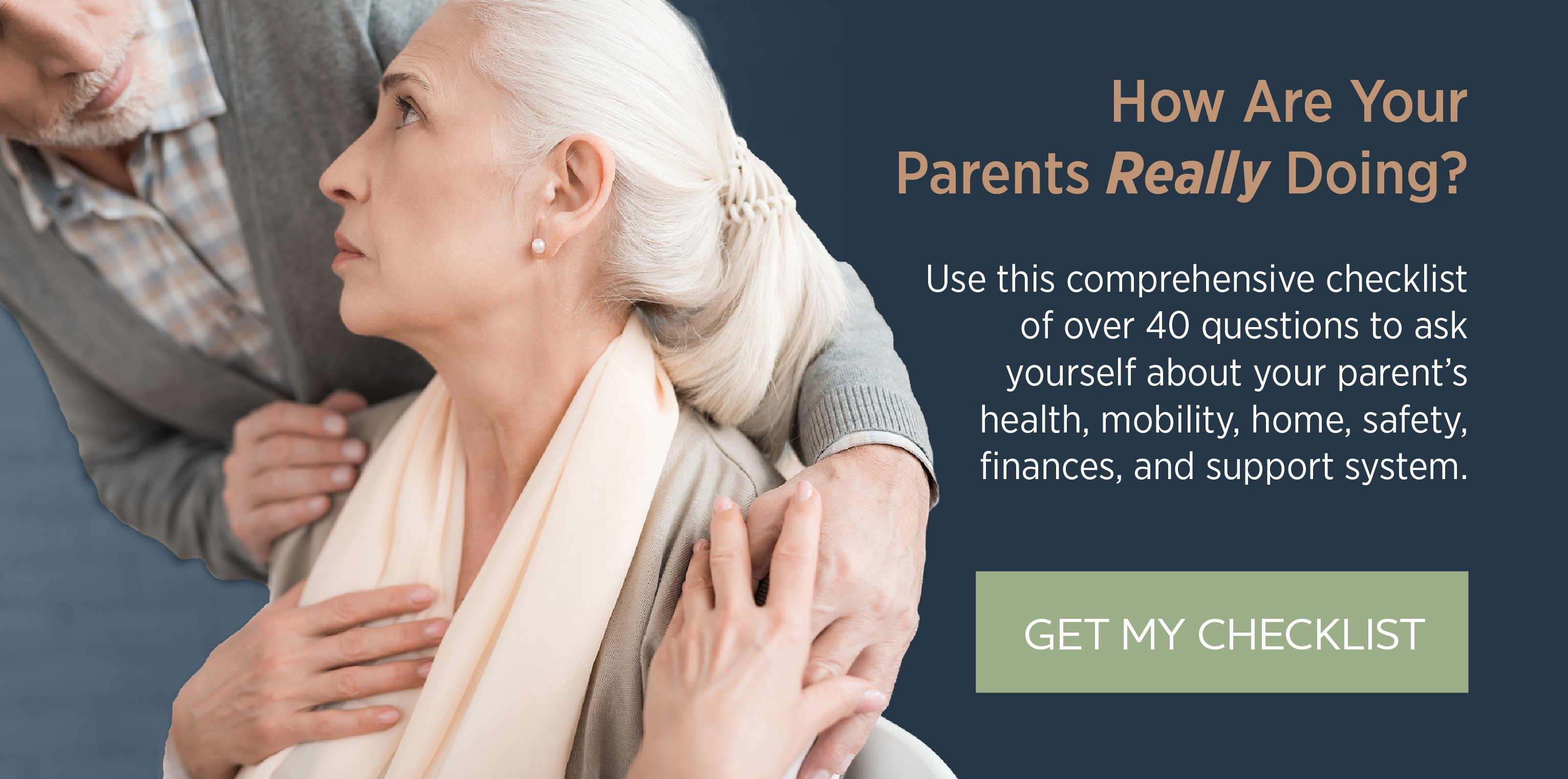 The holidays are wonderful for reminding us to make time for the important people in our lives, especially our families.
The holidays are wonderful for reminding us to make time for the important people in our lives, especially our families.
For families with an aging parent living alone, this is a great opportunity to reinforce their sense of family connection — and a great chance to check in on them.
When you visit your mom or dad who is living alone, find a moment to assess how they’re getting along. Is extra help needed? Is it already past time for them to move in with a family member or to an assisted- or independent-living facility?
The thought of an elderly parent losing their independence can be an anxious time for adult children. You may fear both the burden of caring for a parent and the loss of connection from the parent’s mental and physical decline. You’ll be tempted to just avoid thinking about it altogether. Don’t. Instead, go in with a plan this holiday season. Decide in advance how you will help and what signs you’ll look for that indicate it’s time to get involved.
With your help, your parent will be better able to handle independent living and will be less likely to face the dangers of living alone past when it’s safe.
Here are some helpful to-dos for your home-for-the-holidays checklist.
Take on a Big Project
Call ahead and ask if there are any jobs around the house you can do. Just because dad is fine living on his own doesn’t mean he can still climb on the roof and clean the gutters. If your parent is the kind who would be too embarrassed to ask for help, take the initiative. Be on the lookout for tasks you think would be too difficult and suggest you do them together. Knowing that their strength and balance aren’t what they used to be, you could also suggest doing a few safety modifications to eliminate hazards and make the house easier to navigate.
Look for Warning Signs
Again, be discreet, but search for warning signs that living alone has become too much to handle. Look for moldy food in the refrigerator, pans with excessive burn marks on them, expired medication mixed with new medication, unopened bills lying around, or just an excessive amount of dirt, dust or grime. Take notes of everything you see. Even if it isn’t much, it’s helpful to have a record to serve as a basis for comparison in the future.
Observe Them in Action
Here you’re looking for how well the mind and body are functioning. Again, it’s helpful to take notes.
- If you ride with your parent in the car, pay attention to whether their driving has deteriorated. If you don’t ride with them, look for dents on the car and take note of any recent traffic tickets
- Listen closely when your parent is talking to you. Keep an ear out for confused speech, difficulty carrying on a conversations or frequent repetition of stories.
- Try to get a sense of your parent’s social life to ensure they’re not becoming socially isolated, which is a health risk for elderly adults. Make sure your parent doesn’t lose touch with good friends or give up on favorite activities. Staying in is fine sometimes, but home should not be an all-the-time place.
Ask About the Future
You might not want to talk about it. Your parent might not want to talk about. But you both have been thinking about what the future holds, so get it in the open. When will you know it’s time for your parent to move? Do you want them to live with family, at an independent living facility or somewhere else? If you need help broaching the topic, try these suggestions for how to have the conversation with your elderly parent.
If assisted living is a newer concept to you, check out our latest eBook for more information on what assisted living can offer you and your loved one.
Enjoy the Moment
There’s a lot to think about and worry about as a parent ages, but be careful not to let it distract you from why you’re there. It’s the holidays, and the most important thing is to spend time with your parent and enjoy being together, especially if you only see them one or two times a year.
Worrying about your loved ones is a natural thing. But if you’re careful, know what to look for and keep the lines of communication open, you can be confident that you’ll recognize — before it’s unsafe — when it’s no longer time for your parent to live alone.






